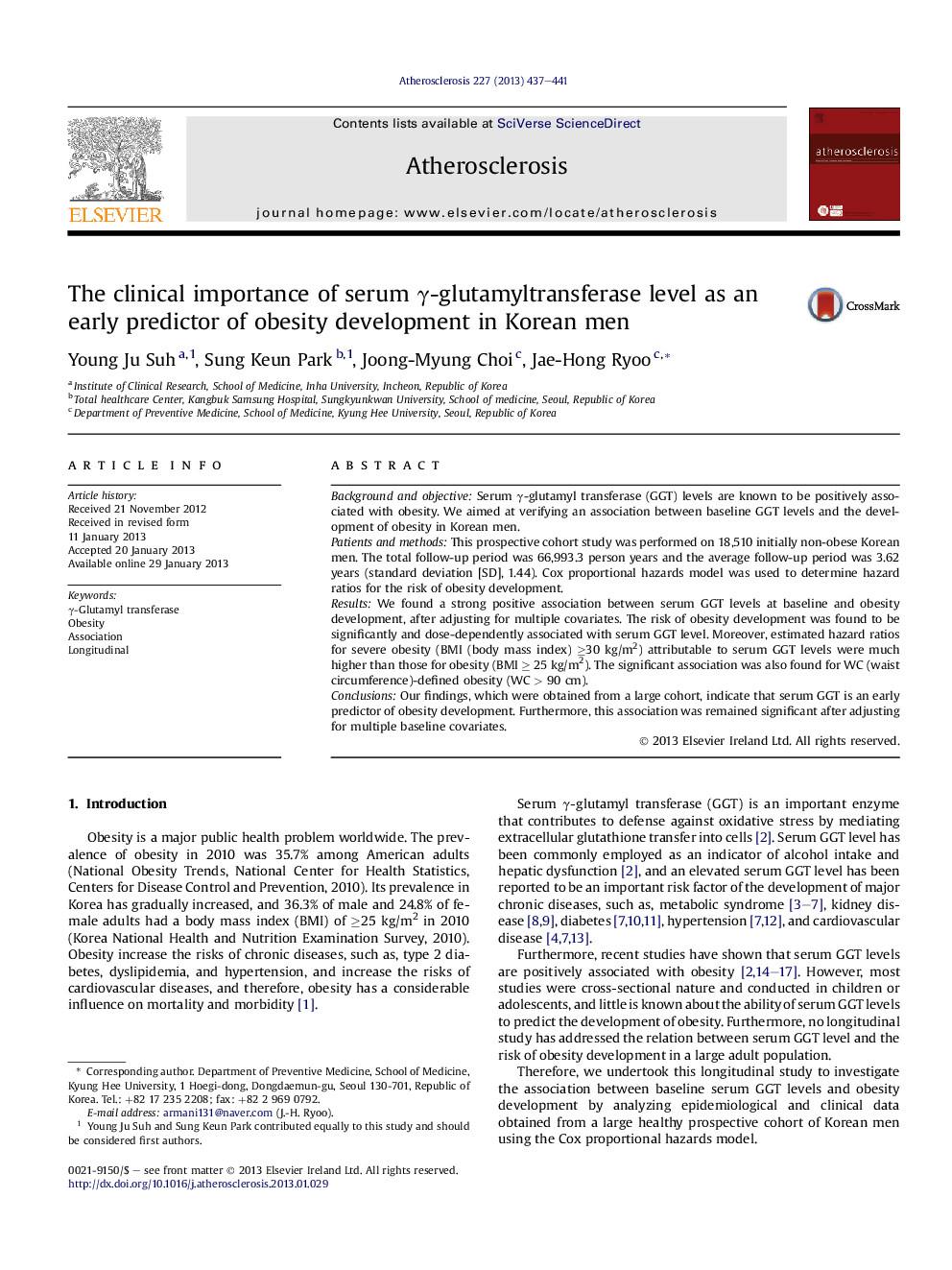| Article ID | Journal | Published Year | Pages | File Type |
|---|---|---|---|---|
| 5947799 | Atherosclerosis | 2013 | 5 Pages |
Background and objectiveSerum γ-glutamyl transferase (GGT) levels are known to be positively associated with obesity. We aimed at verifying an association between baseline GGT levels and the development of obesity in Korean men.Patients and methodsThis prospective cohort study was performed on 18,510 initially non-obese Korean men. The total follow-up period was 66,993.3 person years and the average follow-up period was 3.62 years (standard deviation [SD], 1.44). Cox proportional hazards model was used to determine hazard ratios for the risk of obesity development.ResultsWe found a strong positive association between serum GGT levels at baseline and obesity development, after adjusting for multiple covariates. The risk of obesity development was found to be significantly and dose-dependently associated with serum GGT level. Moreover, estimated hazard ratios for severe obesity (BMI (body mass index) â¥30 kg/m2) attributable to serum GGT levels were much higher than those for obesity (BMI â¥Â 25 kg/m2). The significant association was also found for WC (waist circumference)-defined obesity (WC > 90 cm).ConclusionsOur findings, which were obtained from a large cohort, indicate that serum GGT is an early predictor of obesity development. Furthermore, this association was remained significant after adjusting for multiple baseline covariates.
⺠The aim of this study is to investigate the longitudinal effect of serum γ-glutamyl transferase on the obesity development. ⺠Our study suggests that serum γ-glutamyl transferase can be early predictive marker of obesity. ⺠It was also found to be significantly associated with the development of severe obesity and abdominal obesity, respectively. ⺠More medical attention is needed for people with elevated serum γ-glutamyl transferase.
